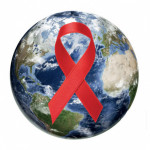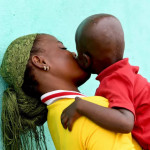In 2008, there was a 33 percent increase in the number of HIV-positive individuals in low- and middle-income countries receiving antiretroviral (ARV) therapy, according to new data from three international agencies shared on Wednesday, July 22, at the Fifth International AIDS Society (IAS) Conference on HIV Pathogenesis, Treatment and Prevention in Cape Town.
Despite this substantial progress, the World Health Organization (WHO), UNICEF and UNAIDS speculate that universal access to ARV treatment by 2010 is unlikely, given a number of obstacles, including weak and fragmented health systems, stigma, discrimination and poorly integrated services.
U.N. member states have committed to universal access to HIV prevention, treatment, care and support in 2010. To facilitate this ambitious goal, WHO, UNICEF and UNAIDS have been aggressively monitoring national and global progress toward key interventions, including access to ARV therapy.
WHO and UNICEF have developed a joint reporting tool for collecting data on progress in the health sector response to HIV/AIDS. Data collected include the number of people on ARV therapy at the end of 2008. At the time of the conference abstract submission, 93 low- and middle-income countries had reported data.
At the end of 2008, between 3.8 million and 4.3 million people were currently on ARV therapy, including between 235,000 and 270,000 children younger than 15. This represents an increase of more than 1 million people—33 percent—since the end of 2007.
Between 2.7 million and 3.1 million people were on treatment at the end of 2008 in sub-Saharan Africa, representing a 40 percent increase in one year. Nevertheless, lead presenter Yves Souteyrand, PhD, of the World Health Organization, said progress is unequally distributed among regions and countries.
Despite continuous progress, Souteyrand admitted, universal access to ARV therapy is not likely by the end of 2010. Some of the factors hindering progress, he said, include weak and fragmented health systems that are not sufficiently decentralized, poor integration of health services, poor access to HIV testing and counseling services, pervasive stigma and discrimination. These constraints, he added, are further affected by the recent economic crisis.
Advertisement
Advertisement
Advertisement






Comments
Comments